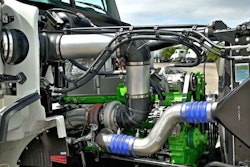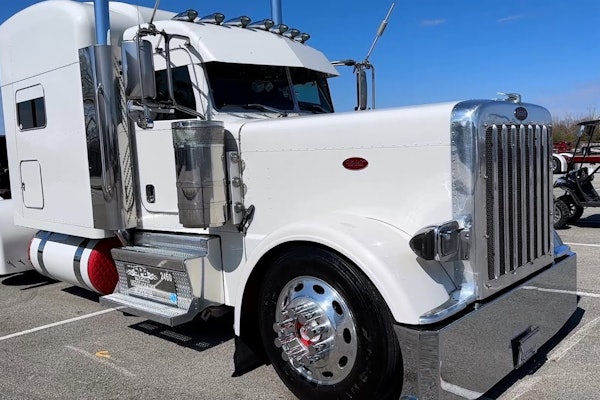The U.S. Environmental Protection Agency’s Office of Inspector General announced last week that it will investigate concerns surrounding the agency’s use of research by Tennessee Tech University. The school last year produced a study claiming that gliders do not produce greater emissions of greenhouse gases or particulate matter than new trucks.
However, officials from the university have since determined that the study was flawed, and that EPA should ignore its conclusions, particularly as the agency evaluates whether to roll back Obama-era emissions regulations that limit the manufacturing of glider kit trucks.
By opening this investigation, announced Dec. 3 by EPA, the agency’s inspector general now has two active investigations into studies regarding glider kit emissions.
EPA’s OIG in September announced it was investigating a competing study, performed by EPA, that concluded that gliders do produce emissions of GHG, NOx and particulate matter at greater levels than new engines equipped with emissions control components. However, that study came under scrutiny over alleged improper contact between EPA researchers and representatives from Volvo Trucks. Volvo is a proponent of limiting production of glider kit trucks, as are Daimler Trucks and Cummins.

The inquiry into the Tennessee Tech study was requested by four members of the U.S. House in October. They asked the EPA’s OIG to launch an investigation into how and why the study was used in a 2017 proposal by EPA that sought to rescind regulations that cap glider kit manufacturers to building just 300 glider kits annually. The EPA has, for now, tabled that proposal, and the annual 300-truck limit, which took effect in January of this year, remains in place.
The lawmakers cited the university’s relationship with Fitzgerald Glider Kits as a key reason for the inquiry.
Fitzgerald, whose headquarters is located about 40 miles from TTU, is the country’s largest glider kit manufacturer.
Fitzgerald paid $70,000 to TTU to complete the study. It isn’t uncommon for companies to pay colleges to perform research, but the lawmakers and faculty members cited other contributions and relationships between Fitzgerald and the university as creating a potential conflict of interest. For instance, Fitzgerald entered into a public-private partnership with the school to build a new research facility two months after the study was released.
Fitzgerald has maintained that it did not sway the study’s results. The company told Overdrive this year that it “has every confidence in the integrity of the Tennessee Tech study and the personnel who conducted it. The results were not predetermined. Fitzgerald Glider Kits employees had no involvement in the monitoring or testing performed in connection with the study, nor were they involved in compiling the test data.”
Trudy Harper, TTU Vice Chair of the Board of Trustees, said in an Oct. 23 letter to EPA that the school’s review “determined that the data does not support the statement” that remanufactured engines used by Fitzgerald in its glider builds produce the same or fewer emissions than new engines.














